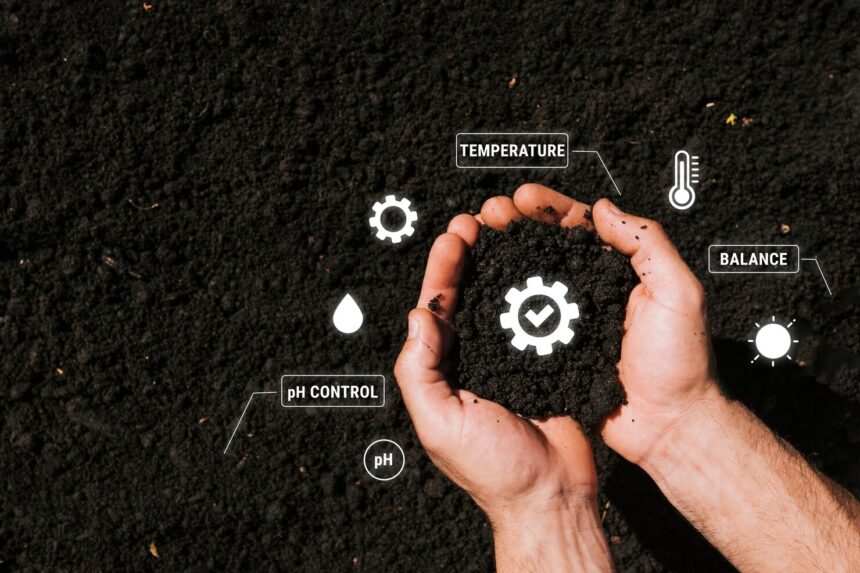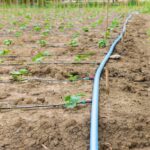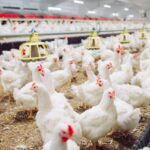For small farmers in the Free State, soil fertility is the cornerstone of successful crop production. Healthy, fertile soil leads to better yields, stronger plants, and sustainable farming practices that can support livelihoods for years to come. However, maintaining and improving soil fertility can be challenging, especially with the changing climate and increasing soil degradation in the region.
Soil fertility refers to the soil’s ability to supply essential nutrients to crops in adequate amounts and proper balance. Fertile soil contains the right proportions of nitrogen, phosphorus, potassium, and other micronutrients, along with organic matter and good soil structure. In the Free State, common challenges like low organic matter, nutrient depletion, and erosion can reduce soil fertility, impacting crop performance.
Adding organic matter such as compost, manure, or green manure crops is one of the most effective ways to improve soil fertility. Organic matter enhances soil structure, increases nutrient availability, and improves moisture retention. Small farmers can use farmyard manure or well-decomposed compost to enrich the soil, grow legumes like cowpeas or sunhemp as cover crops to fix nitrogen naturally, and apply crop residues back to the field instead of burning them.
Practicing crop rotation is another valuable approach. Crop rotation, which involves growing different crops in a planned sequence on the same land, helps break pest and disease cycles, improves nutrient balance, and prevents soil exhaustion. For example, following a cereal crop like maize with a legume such as beans or peas, or rotating root crops with leafy vegetables, varies nutrient demands and improves soil health.
Conservation tillage, which minimizes soil disturbance, preserves soil structure, reduces erosion, and maintains organic matter. Methods like no-till or reduced tillage, combined with mulching using crop residues or organic materials, protect the soil surface and support fertility.
Regular soil testing is vital for understanding nutrient levels and deficiencies. It allows farmers to apply the right type and amount of fertilizers, avoiding wastage and environmental harm. Farmers should collect soil samples from different parts of their fields and send them to a reputable agricultural lab or extension service, then use the results to guide fertilizer and lime application.
Fertilizers supplement soil nutrients but must be applied in the correct balance and timing to be effective. Small farmers should base fertilizer application on soil test results, split fertilizer doses during the growing season to match crop uptake, and combine organic and inorganic fertilizers for better results.
Efficient water management also influences soil fertility by affecting nutrient availability and soil biology. Using mulching to conserve soil moisture, employing drip or furrow irrigation to reduce water wastage, and avoiding overwatering, which can leach nutrients from the soil, are important steps for maintaining fertile soils.
The Free State Department of Agriculture offers extension services to assist farmers with soil testing, training on sustainable practices, and access to inputs. Local agricultural co-ops can also be valuable sources of advice and materials.
Boosting soil fertility is essential for small farmers in the Free State who want to increase crop yields sustainably and improve their livelihoods. By incorporating organic matter, practicing crop rotation, conserving soil structure, testing soil regularly, applying balanced fertilizers, and managing water efficiently, farmers can restore and maintain healthy soils. Investing time and effort in soil fertility today will pay off with more productive and resilient farms tomorrow.
Join 'Farmers Mag' WhatsApp Channel
Get the latest Farming news and tips delivered straight to your WhatsApp
CLICK HERE TO JOIN






